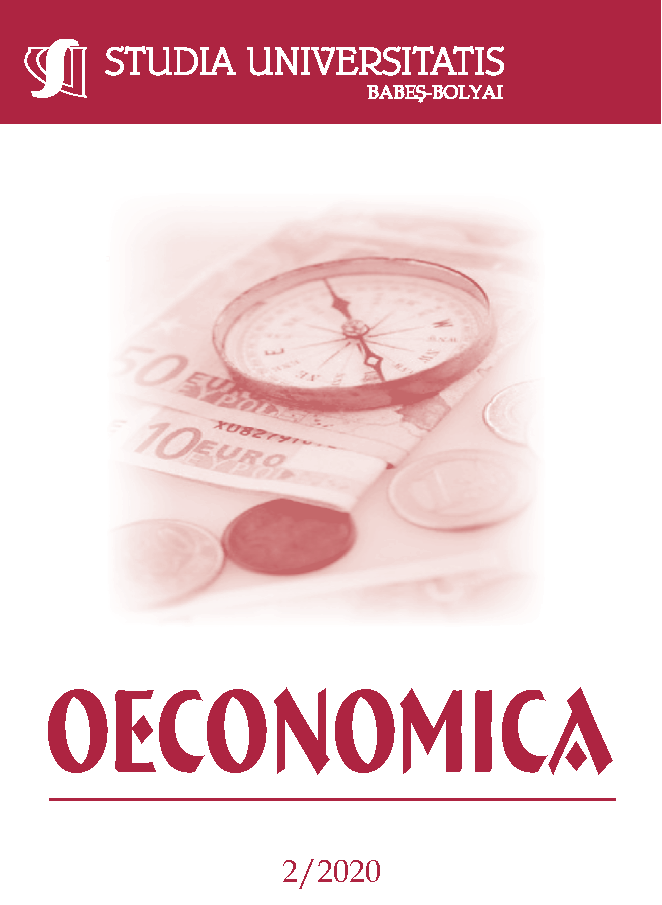THE EFFECT OF THE COVID-19 ON THE AUTOMOTIVE SUPPLY CHAINS
DOI:
https://doi.org/10.2478/subboec-2020-0006Abstract
Securing the high level of performance of the supply chains is a difficult task. The harmonization of different interests, the coordination of the raw material supply and information flow, the cooperation of the partners, forging and maintaining a relationship of trust are challenging even in an ideal world in order to meet the customer demands. The recent outbreak of the COVID-19 presents the members of the supply chains with extreme challenges. Because of the epidemic, the value added activities of the supply chains are getting even more importance. It became clear that the different supply chains connect the whole economy in a global and local scale as well. The choice of the inventory and organizational strategy is a key aspect in a crisis like this. The aim of this study is to present the current challenges and their viable solutions in order to check the possibilities to maintain the operation of the supply chains even in this difficult economic and social period using an automotive case study as an example.
JEL classification: E12, E24.
References
Sharif A., Aloui C., Yarovaya L. (2020) COVID-19 pandemic, oil prices, stock market, geopolitical risk and policyuncertainty nexus in the US economy: Fresh evidence from the wavelet-based approach, International Review of Financial Analysis, 70, p.101496, 1-3.
BerkeSz., Tóth G. (2020) Felelősvállalatvagy "csak" felelősvezető? LÉPÉSEK: A FENNTARTHATÓSÁG FELÉ, 25(1), 14-15.
IvanovD. (2020) Predicting the impacts of epidemic outbreaks on global supplychains: A simulation-based analysis on the coronavirus outbreak (COVID-19/SARS-CoV-2) case, Transportation Research Part E: Logistics and Transportation Review,136, p.101922, 1-3.
Dingel J. I., Neiman B. (2020) How many jobs can be done at home? NBER Working Paper No. 26948, Cambridge, 1-13.
Guarner J. (2020) Three Emerging Coronaviruses in Two Decades, American Journal of Clinical Pathology, 153(4), 420-421.
Haldon J., Eisenberg M., Mordechai L., Izdebski A., White S. (2020) Lessons from the past, policies for the future: resilience and sustainability in past crises, Environment Systems and Decisions, 40(2),287-295.
Harapan H., Itoh N., Yufika A., Winardi W., Keam S., Te H., Megawati D., Hayati Z., Wagner A., Mudatsir M. (2020) Coronavirus disease 2019 (COVID-19): A literature review. Journal of Infection and Public Health, 13(5), 667-670.
Govindan K., Mina H., Alavi B. (2020) A decision support system for demand management in healthcaresupply chains considering the epidemic outbreaks: A case study of coronavirus disease 2019 (COVID-19), Transportation Research Part E: Logistics and Transportation Review, 138, p.101967, 1-4.
Kraus S., Clauss T., Breier M., Gast J., Zardini A., Tiberius V. (2020) The economics of COVID-19: initial empirical evidence on how family firms in five European countries cope with the corona crisis, International Journal of Entrepreneurial Behavior & Research, 26(5), 1-13.
Liu Y., Wang H., Chen J., Zhang X., Yue X., Ke J., Wang B., Peng C. (2020) Emergency management of nursing human resources and supplies to respond to coronavirus disease 2019 epidemic, International Journal of Nursing Sciences, 7(2), 135-138.
Mani S., Mishra M. (2020) Non-monetary levers to enhance employee engagement in organizations – “GREAT” model of motivation during the Covid-19 crisis, Strategic HR Review, 19(4), 171-175.
Zhang M., Chen J., Chang S. (2020) An adaptive simulation analysis of reliability model for the system of supply chain based on partial differential equations, Alexandria Engineering Journal, 1-2.
Nicola M., Alsafi Z., Sohrabi C., Kerwan A., Al-Jabir A., Iosifidis C., Agha M., Agha R. (2020) The socio-economic implications of the coronavirus pandemic (COVID-19): A review, International Journal of Surgery, 78, 185-190
Kırılmaz O., Erol S. (2017) A proactive approach to supply chain risk management: Shifting orders among suppliers to mitigate the supply side risks, Journal of Purchasing and Supply Management,23(1), 54-58.
Opatha H. (2020) The Coronavirus and The Employees: A Study from the Point of Human Resource Management, Sri Lankan Journal of Human Resource Management, 10(1), 37-49.
Szegedi Z., Prezenszki J. (2017) Logisztika-menedzsment, Kossuth Kiadó, Budapest, ISBN 97896309-8877-3, 37-49.
SzondiR. (2020) A globáliskarriermenedzsmentfunkciói, Metszetek,9(1), 49-64
Tátrai T., Vörösmarty Gy. (2020) Beszerzéskoronavírusidején, Közbeszerzési Értesítő Plusz, 2(4),32-34
Varga J., Csiszárik-Kocsir Á. (2019) Redefining the Role of Project Leader for Achieving a Better Project Result, PM World Journal, 8(8), 1-18.
Downloads
Published
How to Cite
Issue
Section
License
Copyright (c) 2020 Studia Universitatis Babeș-Bolyai Oeconomica

This work is licensed under a Creative Commons Attribution-NonCommercial-NoDerivatives 4.0 International License.






